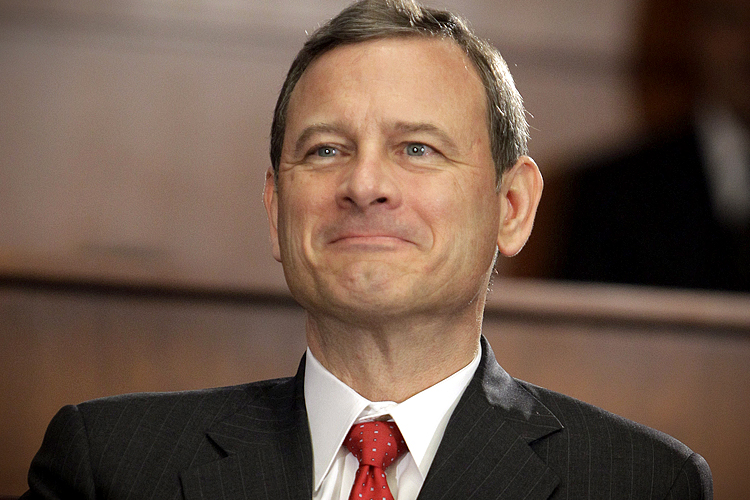In the middle of a key discussion in Wednesday’s landmark Supreme Court decision in Riley v. California, Chief Justice John Roberts quotes from a concurring opinion Justice Sonia Sotomayor wrote two years ago in U.S. v. Jones.
“GPS monitoring generates a precise, comprehensive record of a person’s public movements that reflects a wealth of detail about her familial, political, professional, religious, and sexual associations,” she wrote in that case holding that GPS monitoring was a search.
Roberts used Sotomayor’s earlier argument to support his own assertion that data stored on cellphones was qualitatively different than physical records. His citation of her opinion served to do more than support the new decision – which generally requires cops to get a warrant before they search a cellphone after arresting someone. It also codified Sotomayor’s contention that technology requires a reconsideration of key Fourth Amendment precedents.
The decision is momentous in its own right. It dealt with two difference cases involving men who had their cellphones searched after being detained, which led to evidence used to prosecute them on more serious charges. Roberts held that cellphones hold far more private information than even someone’s home, and as such shouldn’t be searched in the same way as someone’s pockets could be.
He sounded like the ACLU when he explained what to do about it. “Our answer to the question of what police must do before searching a cellphone seized incident to an arrest is accordingly simple— get a warrant.”
In real life, it’s likely that cops will integrate cellphone search warrants into their arrest warrant process. And Roberts’ opinion allows police to invoke exigent circumstances to search a phone. But at a minimum, this ruling will prohibit suspicion-less searches of cellphones.
Which brings me back to Roberts’ citation of Sotomayor.
A different part of Sotomayor’s concurrence, arguing that the existing precedent holding that you don’t have a privacy interest in data you’ve given to a third party “is ill suited to the digital age,” has been invoked repeatedly in privacy debates since she wrote it. That’s especially true since the beginning of Edward Snowden’s leaks. Lawsuits against the phone dragnet often cite that passage, arguing that the phone dragnet is precisely the kind of intrusion that far exceeds the intent of old precedent. And the courts have – with the exception of one decision finding the phone dragnet unconstitutional – ruled that until a majority on the Supreme Court endorses this notion, the old precedents hold.
Roberts cited from a different part of Sotomayor’s opinion, discussing how much GPS data on our movements reveals about our personal lives. That appears amid a discussion in which he cites things that make cellphones different: the multiple functions they serve, the different kinds of data we store in the same place, our Web search terms, location and apps that might betray political affiliation, health data or religion. That is, in an opinion joined by all his colleagues, the chief justice repeats Sotomayor’s argument that the sheer volume of this information makes it different.
That by no means says that those challenging the government’s national security surveillance will prevail by pointing to this opinion. Roberts includes an incredibly pregnant footnote, clarifying that “these cases do not implicate the question whether the collection or inspection of aggregated digital information amounts to a search under other circumstances.” Without naming the third-party doctrine explicitly, with his invocation of “search” Roberts makes it clear that’s what he’s discussing.
That said, the footnote seems to be a mere finger in a dike of other language that would undermine the dragnet, language talking about the “montage of the user’s life” that our data create.
I come away from this opinion with two strong hunches. First, that years from now, some esteemed court watcher will describe how Sonia Sotomayor has gradually been persuading her colleagues that they need to revisit privacy, because only she would have written this opinion two years ago.
But I also feel like – hope that – Roberts loaded this opinion with so much language that will undermine not just cellphone searches but other surveillance, that it serves as a kind of instruction to lower courts and Congress, to start solving this problem now.


